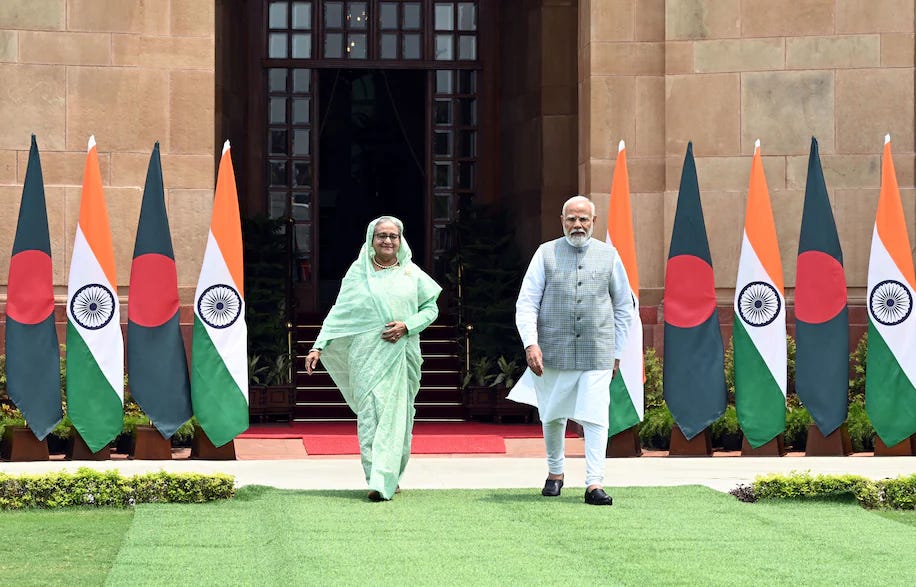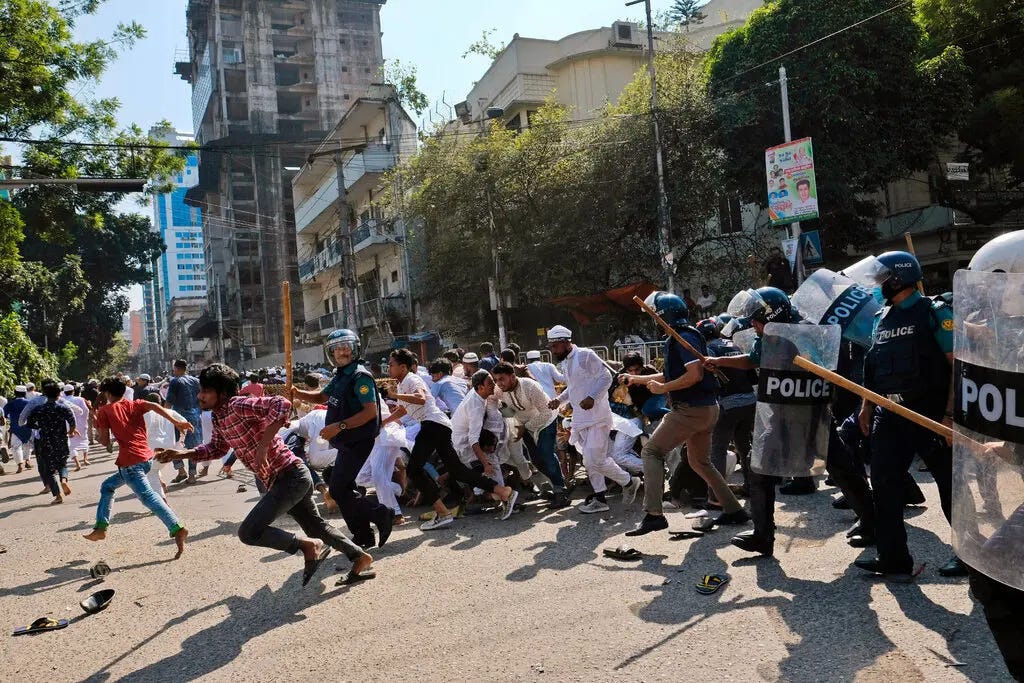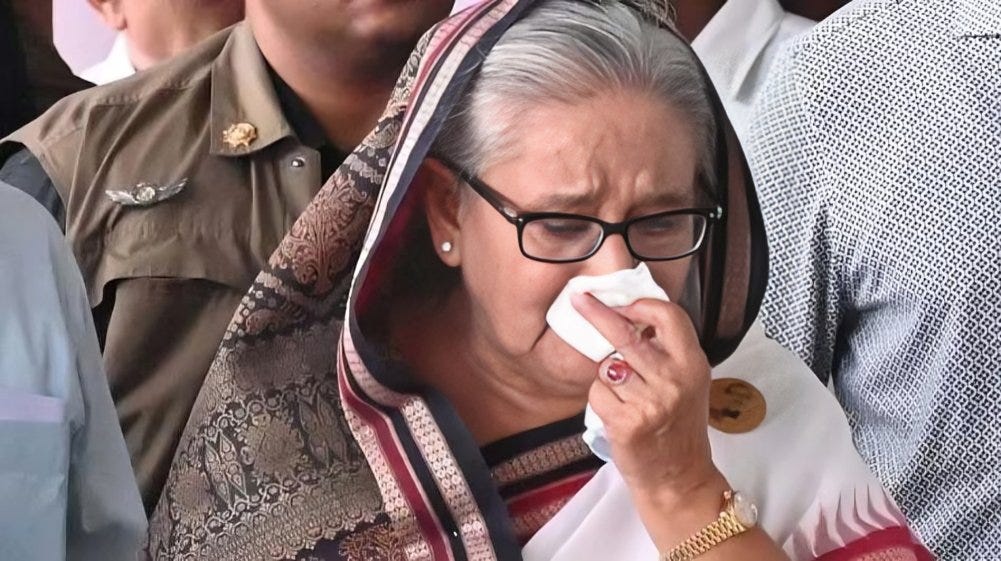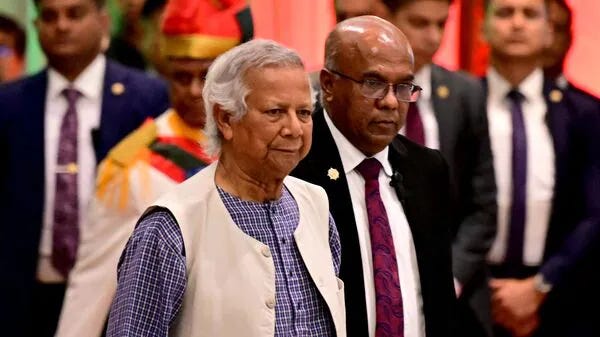Bay of Bengal Chessboard: Navigating the Indo-US Diplomacy in Bangladesh Crisis
Just a framework— fill in the blanks yourself.
Navigating the Indo-US Diplomacy in Bangladesh’s Crisis
Introduction
The political upheaval in Bangladesh has not only reshaped its national landscape but also highlighted the intricate dance of diplomacy and strategic interests between major powers, notably India and the United States. This piece explores the layers of these international relations, revealing the stakes and implications for regional stability.
Background to Bangladesh's Political Turmoil
The Catalysts of Change: In the lead-up to the dramatic ouster of Prime Minister Sheikh Hasina, significant tensions brewed within Bangladesh, marked by widespread allegations of oppression and electoral misconduct. "The international community watched cautiously as Bangladesh teetered on the brink of authoritarianism under Hasina," observes a South Asian political affairs expert. This section will delve into the internal factors that led to the crisis, setting the stage for international involvement.
India’s Strategic Gambit
Balancing Act Between Democracy and Security: India's role in the scenario was multifaceted, driven by a blend of geopolitical strategy and neighborhood diplomacy. "For India, the stability of Bangladesh is intertwined with its own security, especially concerning the rise of Islamist groups near its borders," an Indian diplomatic source stated. This section explores how India’s foreign policy aimed to influence U.S. positions to prioritize regional stability over democratic ideals.
The American Response
A Tug of War Between Ideals and Realpolitik: The United States, under the Biden administration, found itself at a crossroads, balancing its advocacy for democracy with the strategic need to maintain a stable partnership with India. "Our approach sought to marry our democratic values with the pragmatic realities on the ground," a U.S. State Department official commented. This part examines the complexities of U.S. foreign policy decisions and the internal debates that shaped them.
The Fall of a Regime
The Unexpected Unraveling: Despite the diplomatic backchannels, the public dissent in Bangladesh reached a tipping point, culminating in Hasina's dramatic escape. "The fall of Hasina was a scenario few predicted, but it underscores the unpredictable nature of political power," notes a professor of international relations. This segment will analyze the immediate events leading to the regime change and the international reactions.
Reflections and Repercussions
Evaluating the Fallout: In the aftermath of Hasina's departure, both India and the U.S. have been compelled to reassess their strategies and confront the possible miscalculations. "There is a need for introspection on part of all stakeholders to understand the long-term implications of their foreign policy choices," a former U.S. ambassador suggests. Here, the focus will be on the diplomatic fallout, including the shift in public opinion and the strategic recalibrations by India and the U.S.
Forward-Looking Strategies
Shaping a New Regional Paradigm: As Bangladesh moves towards stabilizing its political environment, the role of international actors will be pivotal in shaping the country's future. This final section discusses the potential paths forward for India and the U.S. in supporting a more democratic and stable Bangladesh, highlighting the broader implications for South Asian geopolitics.
Conclusion
The crisis in Bangladesh serves as a critical lesson in the complexities of international diplomacy, where ethical considerations often collide with strategic necessities. As the global community reflects on these events, the enduring challenge remains: how to effectively support democratic processes while safeguarding regional stability.
Notable Quote "As nations navigate the intricate web of diplomacy, the line between ally and adversary can blur, leaving the fates of smaller nations hanging in the balance," reflects a seasoned political strategist.
Primary Source: Washington Post





